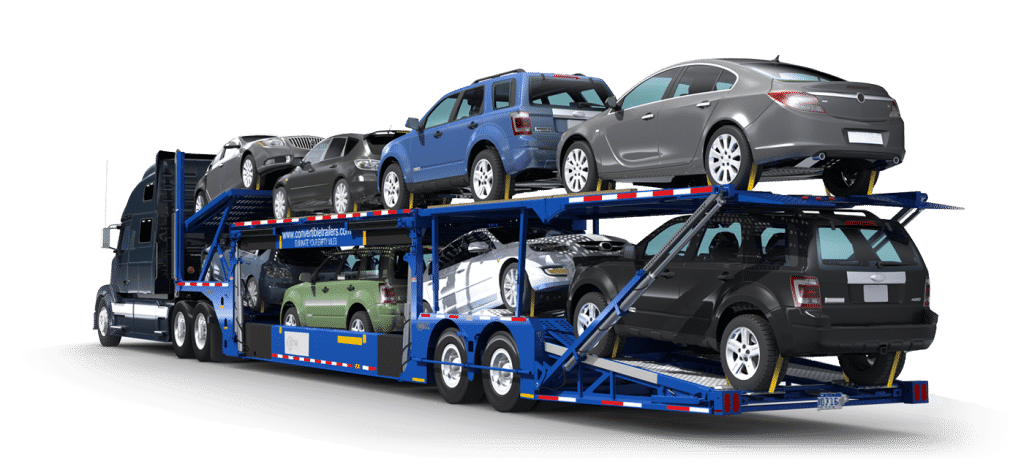Introduction To Electric Vehicle Shipping
The Importance Of Specialized Shipping Routes
As the adoption of electric vehicles (EVs) accelerates globally, the logistics of transporting these advanced automobiles from manufacturing plants to dealerships and consumers have become increasingly important. Specialized shipping routes for electric cars are crucial for several reasons, primarily focusing on safety, efficiency, and environmental sustainability.
One of the foremost considerations is safety. Unlike traditional gasoline-powered vehicles, electric cars house large lithium-ion batteries that require careful handling due to their potential for thermal runaway—a situation where the battery overheats and could catch fire. Specialized shipping routes are often equipped with trained personnel and specific safety measures designed to mitigate these risks, ensuring that EVs arrive at their destinations without incident.
Efficiency is another critical factor. Electric cars must be shipped in a manner that preserves their battery life and overall condition. This often involves climate-controlled environments and dedicated charging stations along transportation routes to maintain optimal battery health. By tailoring routes specifically for EVs, logistics companies can reduce transit times and avoid potential delays associated with inappropriate shipping methods.
Environmental sustainability also comes into play with specialized routes designed to minimize carbon footprints. Traditional shipping methods may not align well with the eco-friendly ethos of electric vehicles. By optimizing routes for fuel efficiency or even incorporating renewable energy sources into transportation logistics, companies can ensure that the environmental benefits of EVs extend beyond just their operational lives.
In conclusion, specialized shipping routes for electric cars are essential not only for ensuring safe and efficient delivery but also for aligning with broader sustainability goals. As the market for EVs continues to grow, so too will the importance of refining these logistical pathways to meet evolving needs.
Regulatory Requirements For Transporting Electric Cars
The transportation of electric cars is subject to a range of regulatory requirements designed to ensure safety, environmental protection, and compliance with international shipping standards. One of the primary concerns in transporting electric vehicles (EVs) is the lithium-ion batteries that power them. These batteries are classified as dangerous goods under international regulations due to their potential risks, including fire hazards and chemical spills.
Consequently, shippers must adhere to stringent guidelines set forth by organizations such as the International Maritime Organization (IMO) and the International Air Transport Association (IATA).
Packaging requirements for EVs are particularly critical. The batteries must be securely installed in the vehicle or, if shipped separately, packed in special containers that can withstand significant impact and prevent short circuits. Proper labeling is also mandated to clearly indicate the presence of hazardous materials. In addition to packaging and labeling, transporters must provide detailed documentation outlining the nature of the cargo, including Material Safety Data Sheets (MSDS) for the batteries.
Furthermore, there are specific handling procedures during loading and unloading operations to mitigate any risk of damage or accidents. Personnel involved in these processes often require specialized training in handling hazardous materials safely.
Customs regulations also play a role in transporting electric cars across international borders. Importers must comply with each country’s specific rules regarding vehicle emissions standards and safety inspections before EVs can be cleared through customs.
Overall, adhering to these regulatory requirements not only ensures compliance with legal standards but also promotes safe transportation practices that protect both people and property from potential hazards associated with shipping electric vehicles.
Challenges In Shipping Electric Vehicles
Shipping electric vehicles (EVs) presents a unique set of challenges that distinguish it from transporting conventional gasoline-powered cars. One of the primary concerns is the weight and size of the batteries. EV batteries are significantly heavier and bulkier, which not only influences the overall weight distribution but also necessitates specialized handling equipment during loading and unloading processes. This added complexity can lead to increased shipping costs and demand for more robust logistics solutions.
Another significant challenge is ensuring the safety of these high-capacity lithium-ion batteries during transit. The risk of thermal runaway—a situation where a battery overheats and potentially catches fire—requires stringent safety protocols. To mitigate this risk, shipping companies must adhere to rigorous regulations and guidelines, including specific packaging requirements, temperature control measures, and emergency response plans in case of an incident.
Moreover, regulatory compliance adds another layer of difficulty. Different countries have varying standards for transporting hazardous materials like lithium-ion batteries. Navigating this complex regulatory landscape demands thorough knowledge and precise documentation to avoid legal issues or shipment delays.
Insurance considerations also play a critical role in shipping EVs. Given the high value of electric cars, securing adequate insurance coverage is essential to protect against potential damages or losses during transit. Insurers may impose higher premiums due to the risks associated with battery transport, further driving up costs.
Lastly, infrastructure limitations at ports can pose logistical challenges. Not all ports are equipped with facilities designed for handling electric vehicles safely and efficiently. This often necessitates routing shipments through specific hubs capable of accommodating these needs, potentially extending delivery times.
In summary, while shipping electric vehicles offers promising business opportunities given their growing popularity, it requires addressing several logistical hurdles—from safety protocols to regulatory compliance—to ensure smooth and secure transit.
Innovations In Electric Vehicle Transport Solutions
Innovations in the transport solutions for electric vehicles (EVs) have become a focal point as the automotive industry pivots toward sustainability. One of the key developments is the creation of specialized shipping routes and protocols designed to accommodate the unique requirements of EVs. Unlike traditional vehicles, EVs present distinct logistical challenges, such as battery management, weight distribution, and safety considerations related to their lithium-ion batteries.
To address these challenges, shipping companies are investing in advanced technologies and infrastructure. Temperature-controlled containers ensure that EV batteries remain within optimal thermal conditions during transit, mitigating risks associated with extreme temperatures. Furthermore, enhanced tracking systems provide real-time updates on vehicle status and environmental conditions, allowing for proactive management of any potential issues.
Port facilities are also evolving to support EV transport. Specialized docking areas equipped with charging stations enable vehicles to maintain charge levels during layovers. This not only preserves battery health but also prepares cars for immediate use upon arrival at their destination.
Moreover, collaboration between automotive manufacturers and logistics providers is fostering innovation in packaging solutions. Custom-built crates and securing mechanisms are being developed to prevent damage during loading and unloading processes. These innovations reduce the risk of battery punctures or short circuits that could lead to fires or other hazards.
In terms of regulatory frameworks, international standards are being established to ensure safe handling practices across different jurisdictions. These include guidelines on battery disconnection procedures and emergency response protocols tailored specifically for EVs.
Overall, these innovations signify a concerted effort within the logistics industry to facilitate the seamless integration of electric vehicles into global transportation networks while prioritizing safety and efficiency.
Case Studies Of Successful Electric Car Shipments
Future Trends In Electric Vehicle Logistics
As the global appetite for electric vehicles (EVs) continues to surge, the logistics industry is on the brink of a transformation that will redefine how these vehicles are transported. One of the most significant future trends in electric vehicle logistics is the development of specialized routes and infrastructure tailored to their unique requirements.
Traditional shipping methods, optimized for internal combustion engine vehicles, often fall short when it comes to handling EVs. These vehicles require meticulous attention due to their sensitive batteries and electronic components. Consequently, shipping companies are increasingly investing in dedicated routes that offer enhanced safety measures, including temperature-controlled environments and advanced monitoring systems that ensure optimal conditions throughout transit.
In addition to physical infrastructure improvements, there’s a growing emphasis on integrating smart technology into logistical operations. Blockchain and IoT (Internet of Things) technologies promise greater transparency and real-time tracking capabilities. This not only boosts efficiency but also provides peace of mind for manufacturers concerned about the condition and security of their high-value cargo.
Sustainability is another driving force behind future trends in EV logistics. As companies strive to reduce their carbon footprint, there’s a push towards adopting greener practices within the supply chain itself. This includes using electric or hybrid transport options for land-based segments of shipping routes and exploring alternative fuels for maritime transport.
Lastly, regulatory frameworks are evolving to support these advancements. Governments worldwide are recognizing the need for specialized EV logistics protocols and are likely to introduce new standards aimed at ensuring safety while promoting innovation.
In summary, the future of electric vehicle logistics lies in specialized routes equipped with state-of-the-art technology and underpinned by sustainable practices—all designed to meet the distinctive needs of this rapidly growing market segment.








